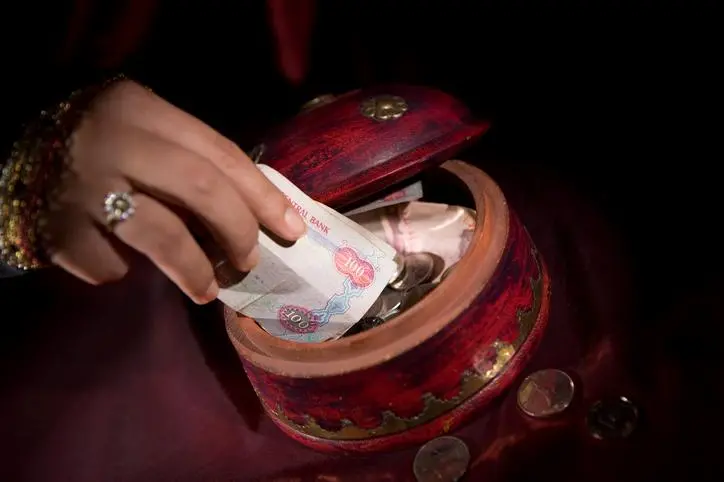PHOTO
People tend to increase their savings in times of uncertainty to ensure that they have money to dip into during an emergency. However, saving too much cash might not be a good move, experts say, especially as interest rates have been plummeting.
In a survey commissioned by wealth specialists Quilter International among 1,000 UAE residents last November, 35 percent said they would put any leftover cash in a savings account with a bank and 37 percent said they would use the money to invest in property.
Video: Is there such a thing as saving too much cash?
While there is nothing wrong with saving up for a dream home, financial experts at Quilter said some people might need to think again about how much money they should store in bank accounts, as sitting on too much cash wouldn’t be financially wise.
“For a long time, investing in property has been seen as a safe bet, so it is no surprise that lots of people would choose to invest in this market. However, this research reveals how many people would just leave any additional savings in cash,” said Brendan Dolan, Global Distribution Director of Quilter International.
Data released by the UAE Central Bank show that, as of October 2020, residents’ bank deposits hit more than 1.713 trillion dirhams, up from 1.614 trillion dirhams in the same period in 2019.
According to Quilter, the general rule to follow is to have spare cash equivalent to six months’ worth of living expenses tucked away in a bank account that can be easily accessible. Once that “buffer” is reached, it’s a good idea to look at investment options to meet future goals.
TOO MUCH CASH
“In broad terms, if you have a short-term goal, then the money is best kept in cash, as the stock market might go up or down and you may [incur] a loss. However, for medium- and longer-term goals, investing is powerful when appropriate, and this research shows that few people see its merits,” said Dolan.
“It is always sensible to build up an emergency cash fund to help get through tricky times such as this pandemic. However, the important thing to remember is that sitting on too much cash is not always a safe bet. Inflation eats away at the value of your money, and low-interest rates mean you may not be getting that much from your account,” Dolan added.
Mark Leale, head of Quilter Cheviot’s Dubai branch office, also advised against having all eggs in one basket: “Nobel Prize laureate Harry Markowitz is famous for saying ‘diversification is the only free lunch’. Put simply, if you are only investing in real estate and cash, you are heavily reliant on those two asset classes being the answer to all of your investment needs.”
“Real estate will hopefully provide a positive income net of costs and taxes plus an increase in value, but it is an illiquid asset, meaning that it is hard to fully or partially turn into cash. Conversely, cash is highly liquid but will almost certainly decline in value when taking into account the effect of inflation,” he added.
STOCKS, FUNDS, BONDS
When asked what investment options they would choose, 19 percent of the respondents to the survey said they would park their money in stocks and shares, and another 19 percent said they would invest in other stock market–based investments like funds and bonds.
Investing money in art, antiques or cars is the least popular (5 percent). A small number (10 percent) would seek a financial adviser’s help, and 14 percent would prefer to spend the extra cash on a holiday.
(Reporting by Cleofe Maceda; editing by Seban Scaria)
Disclaimer: This article is provided for informational purposes only. The content does not provide tax, legal or investment advice or opinion regarding the suitability, value or profitability of any particular security, portfolio or investment strategy. Read our full disclaimer policy here.
© ZAWYA 2021





















